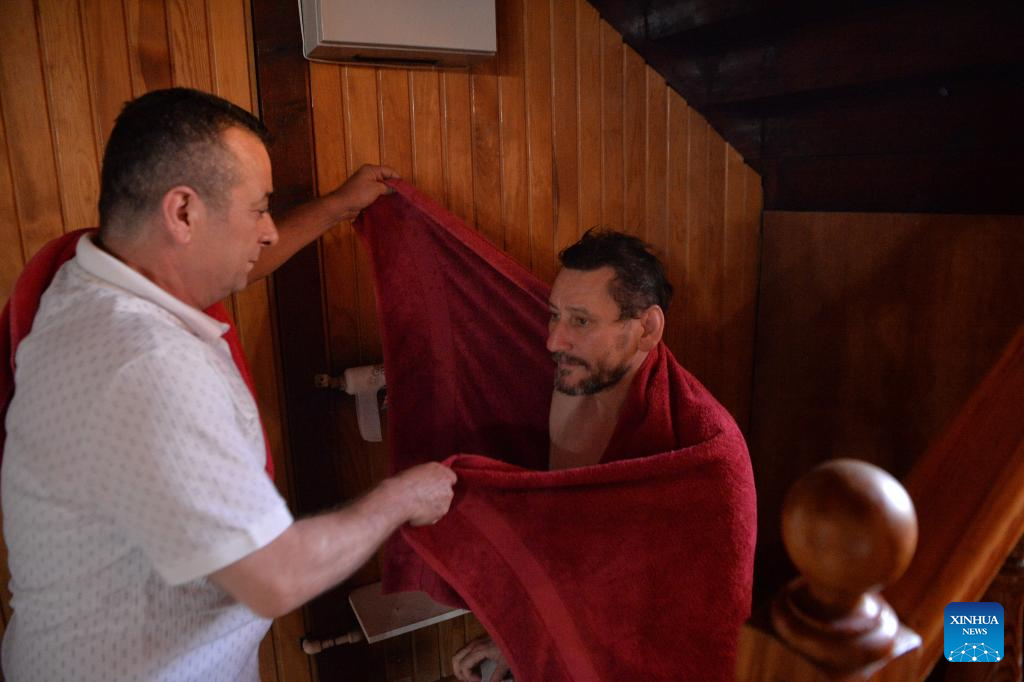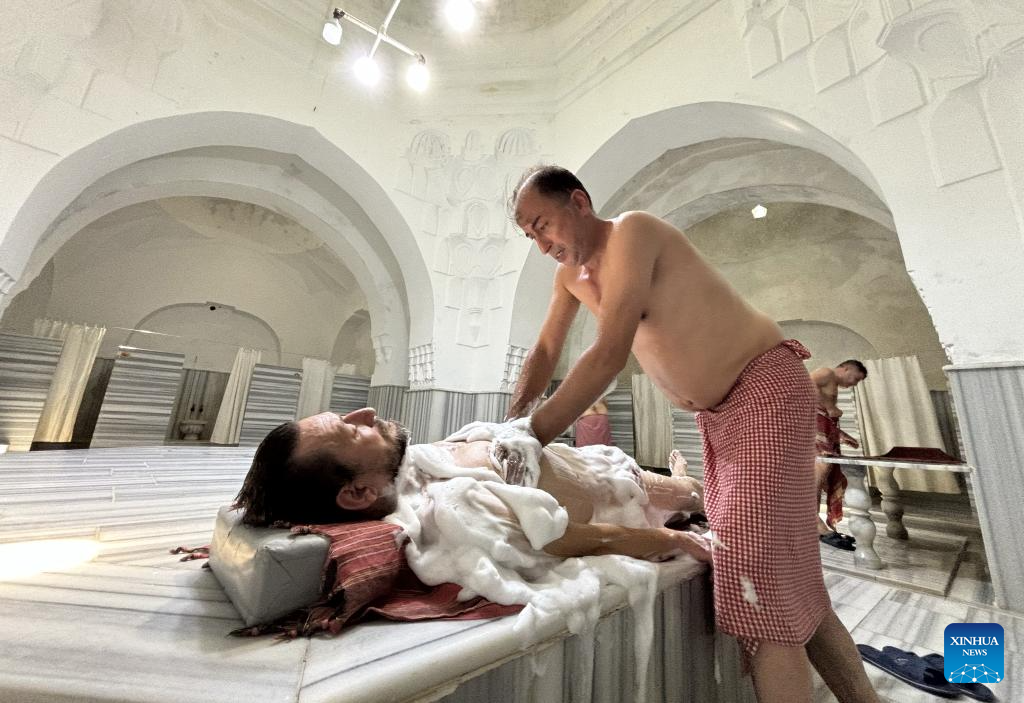
An employee serves a customer at the Karacabey hammam in Ankara, Türkiye, Aug. 16, 2024. (Mustafa Kaya/Handout via Xinhua)
by Burak Akinci
ANKARA, Aug. 17 (Xinhua) -- In the Old City of Turkish capital Ankara, a hammam, or Turkish bath, offers a glimpse into history within its Ottoman setting.
Oner Aydin, the owner of the Karacabey hammam, said it is the oldest and largest hammam in Ankara, which was a small Ottoman town before becoming the Turkish Republic's capital in 1923, providing an authentic Turkish bath experience for centuries.
"The construction of this historic bath began in 1427 and was completed in 1440. It has been in service since then," Aydin said. According to Aydin, the hammam was closed for some time, before his company undertook repairs and resumed its operations in 1989.
The Turkish bath typically features a spacious, circular marble main steam room with high ceilings. It is heated by a furnace, with hot air flowing through conduits beneath the floor.
In the center of Karacabey's steam room, an elevated circular platform allows bathers to lie down and enjoy the heat, as well as receive massages and scrubs.
Individual sinks are installed in the surrounding walls, each with hot and cold water taps. Users can adjust the temperature to their preference and use copper bowls to pour water over themselves.
Hammams have waned in popularity over time. Despite the growth of spa and wellness culture, many Turkish cities still maintain hammams, which was introduced by the Ottomans. However, since the outbreak of the COVID-19 pandemic in 2020, interest in hammams in Türkiye has surged as people have become more health-conscious.
According to Aydin, Turkish baths have many health benefits. "Hammams are crucial for health because the steam opens pores, the scrub rejuvenates the body, and the environment allows the body to breathe," he said.
Visitors to the hammam typically wrap themselves in a traditional Turkish bathing towel known as a "pestemal."
For those seeking a foam massage and good scrub, scrubbers using a special exfoliating glove called a "kese" are often available to remove dead skin.
After the steam bath, bathers typically move to the resting room to cool down and relax, often sipping a glass of Turkish tea or conversing with friends. The entire experience usually lasts up to two hours.
Turkish baths have traditionally served as communal spaces for socializing, relaxing, and rejuvenating both physically and mentally.
"Hammam means cleanliness, this is something deeply rooted in our culture. For me, it signifies rejuvenation and peace," said Erdal Turkkan, a frequent visitor.
He believes that the experience of a home shower is quite different from visiting a hammam, and people are returning to this tradition to escape the stress and grind of modern life.
"Hammams are venues for connection, where people meet, get to know each other, and discuss business," Aydin said. ■

An employee serves a customer at the Karacabey hammam in Ankara, Türkiye, Aug. 16, 2024. (Mustafa Kaya/Handout via Xinhua)



